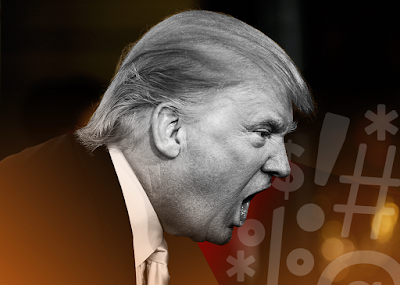Donald Trump and the Dodd-Frank Act: “The Very Worst Kind of Government Entity” Finds Its Head on the Block
Regular readers of Financial
Regulation Matters (and, in truth, any financially-concerned writing) will
be more than aware that President Trump has his sights set firmly on the
Dodd-Frank Act’s destruction; in fact, he is unequivocal in his aims to remove
regulations that ‘enshrine
too big to fail and encourage risky behaviour’. Yet, his planned dismantling,
like almost every other ‘huge’ plan that he declared on his way to the White
House, has not come to fruition and the new strategy is, seemingly, based upon
a piecemeal approach and taking victories whenever one presents itself;
recently, with certain actions taken at a Government agency created by the
Dodd-Frank Act, Trump sensed a victory and acted. Yet, things have not gone
smoothly and in this post we will assess the development of this story and some
of the implications.
It has been suggested on numerous occasions that the
roadblocks that have been erected in Trump’s remarkable path will force his
Administration to think differently about how to achieve their goals whilst in
office. Talking about how the Administration would navigate around hurdles in
relation to banking rules, it was suggested earlier this year that the
Administration would seek to do all it could without reverting to
altering/enacted legislation i.e. it would act through the regulators and their specific
regulations. Whilst not surprising given that the Administration has few
options available to them in their conquest, that analysis was indeed
prophetic, as recent events show. A few days ago, the Head of the Consumer
Financial Protection Bureau (an agency formed in the wake
of the Crisis), Richard Cordray, stepped down from his post and, as
according to the rules in the Dodd-Frank Act, his Deputy, Leandra English, was promoted
to interim Head of the Bureau. Yet, sensing a victory, Trump and his
Administration announced that Mick Mulvaney, the White House’s Budget Director,
would be stepping under the powers
afforded to the President under the Federal Vacancies Act.
The obvious result was one of confusion (which is normal since
2016), and the remarkable situation whereby a powerful Government agency has
two people claiming to be its Head. Fast-forward a few hours, and English had filed
a lawsuit against the decision; news breaking at the time of writing is
that the Judge hearing the case has declined to ‘remove
Trump pick Mulvaney’ from the CFPB, with Mulvaney sending emails to CFPB
staff immediately advising staff to disregard English’s instructions as she is ‘purporting
to be acting director’. Whilst the legal battle is not over – it is
projected to go the Federal Appeals Court – the dismal reduction in standards
is a remarkable (d)evolution in the esteem of the political process.
Furthermore, and rather unsurprisingly, the move has caused even further rifts
between the political ‘sides’ in the US, with Barney Frank (of Dodd-Frank)
stating, quite rightly, that ‘we
gave a lot of attention to how to structure the CFPB and how to protect its
independence, because its job is to go after some very powerful forces in the
economy’, which leads us smoothly into discussing the elephant in the room:
why is Trump taking such an action?
Donald Trump, during his campaign trail, said many things.
Many claims were outlandish, and many, if not all, were ‘mistruths’ – a political
word for a lie. Yet, one that seem to stick and gain him favour was the
oft-repeated and catchy slogan ‘drain
the swamp’. This mantra was repeated on stage after stage, and was applied
to a number of different elements: politics and big business mostly, although
in reality nobody was safe. Yet, even before he took Office after his
inauguration, Trump has been systematically spending the U.S. taxpayer’s money,
with the cost of his visits to Mar-a-Lago allegedly costing the taxpayers $20
million in
the first 100 days. Yet, all the ludicrous figures on the usage of Air
Force One, golfing
breaks with Tiger Woods, and whatever else, should be no distraction to
what Donald Trump is doing; he is not just advocating
for big business, he is actively
dismantling regulations designed to constrain the iniquities of big business.
It is important that this is articulated and repeatedly so.
In 2007/8, a decade ago, the American citizens, as just one example, were
systematically abused by big business. They were actively fed into processes that people coherently understood would
see them harmed. They were considered to be acceptable collateral in a game in
which they can never win. These are
not conspiracy theories, they are supported
observations and need to be remembered every time the President decides to
lower the standards of such a powerful and dominant Country. The effect of this
period upon the progression of the United States will be, arguably, what
defines the coming global dynamic for decades, and Trump’s continuous
dedication to operating upon the lowest common denominator, to inciting
confusion, fear and disrespect, must
have a consequence – it will not just bounce back to normal when he leaves
Office. This news may look like a battle for a regulator, but is much more than
that.
Keywords – Donald Trump, Consumer Financial Protection
Bureau, Financial regulation, Politics, United States, Republicans, Democrats,
Financial Crisis, Society, @finregmatters





Comments
Post a Comment